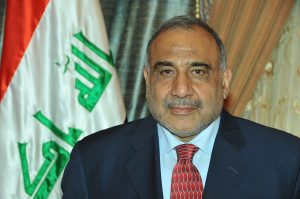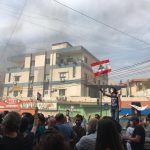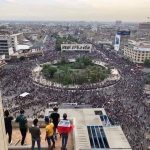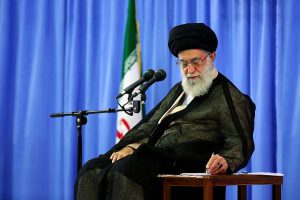By Paul Mutter
Rolf Ekéus, who was executive chairman for the UN Special Commission on Iraq between 1991 and 1997, writes with Målfrid Braut-Hegghammer, a nuclear expert at Standford University, on the parallels between the run-up to the Iraq War and the present state of negotiations between Tehran and the international community.
Rolf and Braut-Heggehammer place the onus for the collapse of UN inspection efforts in Iraq on the Clinton Administration’s decision to explicitly denote US policy in Iraq as regime change, effectively abandoning the post-Desert Storm “dual containment” strategy and laying the groundwork for the Bush Administration’s 2003 decision to go to war:
Between 1991 and 1997, Iraq moved steadily forward with disarmament. Even as it did so, of course, Iraqi leaders tested the resolve of the international community by frequently obstructing the inspectors. But the regime was determined to get the United Nations to lift the sanctions and realized that the international community remained committed to enforcing the cease-fire terms. So between 1995 and 1997, Iraq cooperated more thoroughly. By the first few months of 1997, Iraq had completed the disarmament phase of the cease-fire agreement and the United Nations had developed a monitoring system designed to detect Iraqi violations of the nonproliferation requirement.
At this point, several members of the Security Council argued that it was time to conduct a full review of Iraq’s progress in preparation for lifting the sanctions. But the United States took a different view. In the spring of 1997, former U.S. Secretary of State Madeleine Albright gave a speech at Georgetown University in which she stated that even if the weapons provisions under the cease-fire resolution were completed, the United States would not agree to lifting sanctions unless Saddam had been removed from power.
With regime change now a stated U.S. objective and the easing of economic sanctions off the table, Saddam lost his appetite for cooperation. He foiled the inspectors at every turn and finally ousted them after a 1998 U.S.-British bombing campaign targeting Saddam’s headquarters, air defenses and security organizations that was allegedly intended to weaken Iraq’s ability to produce weapons of mass destruction (WMD). The UN Security Council could not rally together in support of the inspection regime or reform the sanctions, and misinformation about Iraqi weapons capabilities spread. In 2003, the George W. Bush administration used faulty assessments of the country’s WMD program to make the case for war. Due to the information vacuum that followed the four-year absence of inspections, those allegations could not be easily countered. If monitoring had remained in place, the international community would have been confident in the fact that Iraq’s ability to make WMD had not been reconstituted. A costly war could have been avoided.
The authors recommend the US reevaluate past third-party deals suggested by non-US actors between Iran and the West:
Iran has developed the capability to enrich uranium to 20 percent and has explored aspects of weaponization. The most recent IAEA report shows that Iran’s enrichment capability is increasingly diversified and robust. Faced with these new facts on the ground, the United States will have to rethink making an agreement with Iran. The alternatives are worse. Military strikes will effectively remove the domestic constraints on the effort to develop nuclear weapons. Iran’s weapons program will go from dormant to overdrive.
Two years ago, Iran agreed to a Brazilian-Turkish fuel-swap proposal under which Iran could develop nuclear power without accumulating raw material for nuclear weapons. Last year, Russia put forth a plan imposing a number of restrictions on Iranian enrichment and facilitating more intrusive IAEA inspections. Neither proposal was supported by the United States, as the Obama administration’s top priority was to intensify international pressure on Tehran. Now, given Iran’s progress toward building the bomb, any new proposal should include an intrusive monitoring system with an early-warning mechanism inside Iran’s nuclear establishment. Such a requirement would help prevent a breakout program, as Iran would recognize that evidence of such activities would lead to military strikes and additional severe economic sanctions. The agreement would also have to be accompanied with a list of clearly defined steps that Iran could take to achieve the lifting of sanctions.




